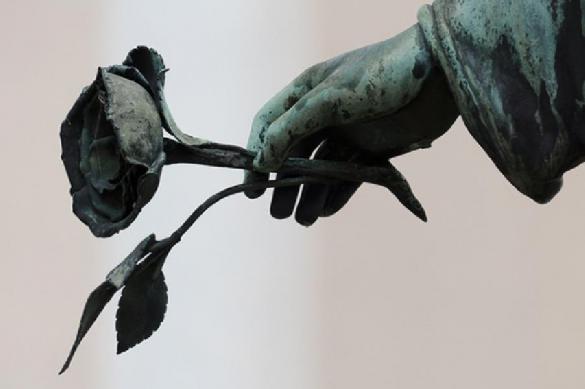In accordance with the decree signed by Moscow Mayor Sergei Sobyanin, as well as the decision made by Moscow Region Governor Andrei Vorobyov, cemeteries will be open only for the burial of the dead until the end of the high alert mode (it expires on May 31). One is not allowed to visit cemeteries due to the coronavirus pandemic.

It is forbidden to deliver deceased bodies with confirmed COVID-19 to relatives for farewell ceremony. In accordance with recommendations from the Ministry of Health of the Russian Federation, the burial of those who dies of the coronavirus infection shall be carried out in closed coffins, and it is strictly forbidden to open them during the funeral.
Different regions of Russia practice different norms for the burial of coronavirus victims' bodies. In some regions, it is recommended to bury the deceased in closed coffins, in some others the authorities insist on zinc coffins or cremation, although cremation is not mandatory.
It is recommended to observe safety measures at all funerals, and direct tactile contacts with the body or the coffin of the deceased are prohibited. One is required to maintain social distancing and use personal protective equipment, like in any other public place. Employees of cemeteries, funeral agencies and funeral homes use special protective suits along with face masks and gloves.
Specially designated cemeteries provided for victims of Covid-19
Some regions of the Russian Federation have established regulations for funeral procedures against the backdrop of the coronavirus pandemic. Restrictions on the number of individuals who come to bid farewell at a funeral ceremony depend on the decision of the local authorities. For example, in North Ossetia, the presence of more than 50 people at a funeral is prohibited. In Moscow and the Moscow region, it is recommended to limit the number of people at funeral to 5-7 people maximum. In some parts of the country, those who died of coronavirus are buried at ordinary cemeteries, whereas in other regions, it is allowed to use only specially designated cemeteries. For example, in St. Petersburg, Mordovia and some other regions, special cemeteries and territories were assigned for victims of COVID-19.
Performing the autopsy of the body of the deceased is mandatory, and it is impossible to refuse from it, even if the deceased did not have the confirmed infection, but was only suspected for it.
The deceased bodies with the confirmed coronavirus are treated with a disinfectant. Afterwards, they are packed into double sealed bags, which are no longer allowed to open. Ordinary coffins are used – they can be treated with a disinfectant both on the outside and on the inside. At some cemeteries, coffins are sprinkled with bleach on the inside.
There are some funeral firms that started providing remote services, such as remote funerals, remote visiting of burial sites, remote flower laying, remote grave cleaning, etc.
Death certificates may not always indicate that the deceased was COVID-positive. The cause of death may be stated as cancer, heart failure, autoimmune diseases or other chronic diseases, which, in combination with COVID-19, have led to death.
No comments :
Post a Comment